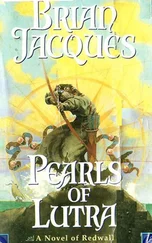Brian Staveley - The Providence of Fire
Здесь есть возможность читать онлайн «Brian Staveley - The Providence of Fire» весь текст электронной книги совершенно бесплатно (целиком полную версию без сокращений). В некоторых случаях можно слушать аудио, скачать через торрент в формате fb2 и присутствует краткое содержание. Год выпуска: 0101, ISBN: 0101, Издательство: Tom Doherty Associates, Жанр: Фэнтези, на английском языке. Описание произведения, (предисловие) а так же отзывы посетителей доступны на портале библиотеки ЛибКат.
- Название:The Providence of Fire
- Автор:
- Издательство:Tom Doherty Associates
- Жанр:
- Год:0101
- ISBN:9781466828445
- Рейтинг книги:4 / 5. Голосов: 1
-
Избранное:Добавить в избранное
- Отзывы:
-
Ваша оценка:
- 80
- 1
- 2
- 3
- 4
- 5
The Providence of Fire: краткое содержание, описание и аннотация
Предлагаем к чтению аннотацию, описание, краткое содержание или предисловие (зависит от того, что написал сам автор книги «The Providence of Fire»). Если вы не нашли необходимую информацию о книге — напишите в комментариях, мы постараемся отыскать её.
The Providence of Fire — читать онлайн бесплатно полную книгу (весь текст) целиком
Ниже представлен текст книги, разбитый по страницам. Система сохранения места последней прочитанной страницы, позволяет с удобством читать онлайн бесплатно книгу «The Providence of Fire», без необходимости каждый раз заново искать на чём Вы остановились. Поставьте закладку, и сможете в любой момент перейти на страницу, на которой закончили чтение.
Интервал:
Закладка:
Can strip the skin from some legionary bastard with a rake as well as a sword, the giver proudly proclaimed.
The words made Adare sick. She needed to see il Tornja unseated-that much she had never doubted-but now that her own army was gathering, she was starting to tally up the true cost for the first time. She wasn’t just preparing to fight a war, she was putting together a military force that would kill Annurians, loyal soldiers doing their best to hold their posts and defend the empire. It was a grim thought, one that refused to leave her as she worked with Lehav to make the force ready to march.
As it turned out, rallying an army wasn’t simply a matter of running a flag up the pole, making a few stirring speeches, and passing out swords. Not even for a princess. Not even for a prophet. Adare had thought she understood something of military logistics from her reading, but the books made everything seem tidy, manageable, as though the main work were lining up wagons and procuring rations, meting out rank and enforcing discipline. Whoever wrote the books, however, had evidently authored them from a comfortable chair far from the mess of actual mobilization.
It took Lehav almost a full week just to assemble a respectable force out of the disbanded Sons of Flame. Most of the soldiers had quit Annur, traveling south partly to escape the capital, partly to chase the whispers they’d heard of a force coalescing secretly in Olon. Coalesce it certainly had-there were thousands upon thousands of Sons in and around the city-but the secret part meant that, for all but a few hundred, Lehav’s innermost circle, there was no clear hierarchy, no established muster point, no protocol for the dissemination and verification of orders, nothing beyond a shared desire to defend Intarra with the force of their arms and a tenacious hatred of the Malkeenians.
The miracle at the Well had rehabilitated Adare in the eyes of many, but Lehav had been laying on anti-imperial propaganda with a trowel for a long time-it was the chief reason so many citizens were so ready to take up arms in the first place-and it took a concerted effort to reverse the message, to explain to scores, then hundreds, then thousands, that Adare was, in fact, a victim of the same vile treachery that had taken down the Intarran Church. Every morning and every night Lehav and Adare appeared in a small plaza before a new group of hardened faces, explaining that the conflict between them had been a misunderstanding, that both longed fervently for a strong empire in which the worship of Intarra would play a central part, that Ran il Tornja, kenarang turned regent, was their common foe.
“He knows we’re coming,” Lehav said one night, as the two of them sat picking over the bones of a fried carp. Despite his burns, Fulton had resumed his duties, but he waited just outside the door, leaving Adare and the soldier alone for the meal. “The palace has spies here, same as everywhere else, and there’s no way to disguise what we’re doing.”
Adare nodded wearily. “Not that we have much of a choice.”
“There are always choices.”
She looked up from the fish, studying the man. Despite their common cause, despite Fulton’s pardon and Adare’s own sudden rise in stature among the Sons of Flame, Lehav still made her uneasy. He accepted her, worked with her, but she had no feeling at all for how he felt about her, and she had not forgotten that day in the Perfumed Quarter when he almost left her to the canal rats. She didn’t question his devotion to the goddess, and Adare hoped that devotion might be enough to keep their paths running parallel, but there was no way to be sure. Unlike the others, Lehav referred to her as a princess still, not a prophet.
“Are you having doubts?” Adare asked.
Intarra knew she was having plenty of her own, but that didn’t mean she was ready to lose the Sons of Flame. Without them, her defiance was dead, as she would be, when il Tornja finally caught up with her.
“I have questions,” he said, setting his knife down, the blade disappearing into the thick sauce in the bottom of the platter.
“All right then,” Adare said. “Ask them.”
For a moment, he remained silent, studying the carcass of the fish. After a few heartbeats, he pulled off one of the ribs, sucked on it a moment, then tossed it back onto the tray.
“What is he like?” he asked finally. “The kenarang ? What kind of man is he? What kind of soldier?”
“Why don’t you tell me? You’re the one who served under him.”
“I was in the south, in the jungles. At that point, il Tornja was still a regional commander all the way up in Raalte. I’ve never even met the man.”
Adare frowned, then shook her head. “I’ve read all the classic treatises, but I don’t know the first thing about soldiering. Men say he’s brilliant, that he wins battles no one else could win. His soldiers would follow him around the earth if he asked it, which I suppose makes him dangerous enough.”
She paused. Her memories of il Tornja were like knives; bright and sharp, cutting.
“As for the man,” she went on, trying to find the right words, “he seems flippant, dashing, insouciant … but it’s not real. Not all of it, at least. I thought I was smart, but he used me, used me like a fine tool that he had chosen and polished for his purpose, used me without my even knowing it.”
Lehav watched her, the reflected flame of the candle alive in his narrowed eyes. “You escaped,” he pointed out.
She nodded bleakly. “And now we’re going back.”
Over the following days, the fear and uncertainty gnawed at her like a rat trapped in her guts. Still, speech by speech, day by day, the force grew. Men polished their armor, honed their blades, and joined the growing camp just north of the city. Just as importantly, the citizens of Olon and her hinterland gathered as well, some to gawk at the unexpected force, some from genuine devotion to either Adare or Intarra, some because they had something to sell-wagons, horses, grain. Offerings to Intarra’s prophet were all well and good, but people needed to make a living, and there was good money to be made outfitting an army.
Where the money came from was a different question and one that, to Adare’s surprise and satisfaction, she proved uniquely able to answer. Olon, for all its poverty and dilapidation, still acted as a funnel for most of the trade between central Eridroa and the capital itself. Significant trade meant significant taxes, and Adare, leveraging her twin roles as Malkeenian princess and the Minister of Finance, insisted on access to the imperial coffers, coffers packed with coin. Enough coin, as it turned out, to back an army.
A week after the lightning at the Well, the Sons of Flame had most of the supplies necessary to reach Annur. On the following day, they marched, leaving the city while a baffled population looked on, some cheering, some wary, wondering what effect that war would have on them, on their homes and families.
Only when Adare finally saw the army moving, marching, rank upon rank of men headed north, did she realize just how crucial the Sons of Flame were to her goals. She had known it in her head, of course-it was her whole reason for coming-but she could see it now, hear it, feel it in the trembling dirt beneath her boots. Despite their dislocation and the partial collapse of their Church, most of the Sons had served their order for years, and found little difficulty falling back into the old structures of command, the lifelong habits of discipline that distinguished a professional fighting force from a rabble of angry men with steel in their hands. Adare could have seized the Olonian treasury and tried to raise her own army, but the men would have had no cohesion, no training, no experience working in units, probably no idea how to walk in a line without stepping on one another’s heels. As she marched north with the Sons, however, recapitulating in reverse her long miles along the canal, things went so smoothly that it was easy to forget that at the end of it, they would have to fight a battle. That at the end of it, prophets or not, they might all be dead.
Читать дальшеИнтервал:
Закладка:
Похожие книги на «The Providence of Fire»
Представляем Вашему вниманию похожие книги на «The Providence of Fire» списком для выбора. Мы отобрали схожую по названию и смыслу литературу в надежде предоставить читателям больше вариантов отыскать новые, интересные, ещё непрочитанные произведения.
Обсуждение, отзывы о книге «The Providence of Fire» и просто собственные мнения читателей. Оставьте ваши комментарии, напишите, что Вы думаете о произведении, его смысле или главных героях. Укажите что конкретно понравилось, а что нет, и почему Вы так считаете.












